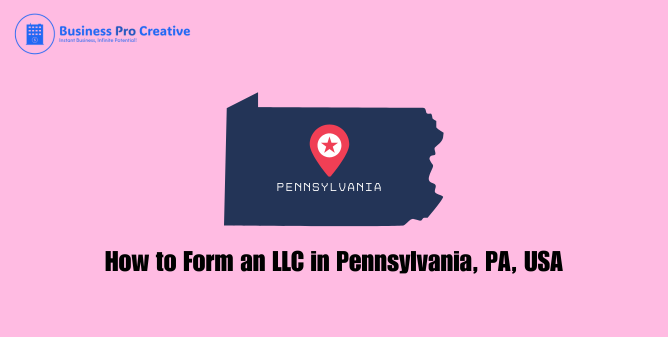
To form an LLC in Pennsylvania, start by choosing a unique name and selecting a registered agent. File the Certificate of Organization with the state, paying a $125 fee. Create an operating agreement and obtain necessary licenses and permits. You’ll need to comply with ongoing requirements like filing annual reports and paying taxes. The process offers benefits like limited liability protection and tax flexibility, but consider potential drawbacks such as higher formation costs. Pennsylvania’s diverse economy and supportive business environment make it an attractive state for entrepreneurs. Exploring further details can help you make informed decisions about your LLC formation.
What Are the Steps to Form an LLC in Pennsylvania?
Forming an LLC in Pennsylvania involves several key steps.
First, choose a unique name for your LLC and check its availability.
Next, select a registered agent and file your Certificate of Organization with the state.
You’ll need to create an operating agreement, obtain necessary licenses and permits, and register for taxes.
Click here to form an LLC in Pennsylvaniain 10 minutes.
What Are the Costs and Fees for an LLC in Pennsylvania?
In light of forming an LLC in Pennsylvania, you’ll need to contemplate various costs and fees.
The state charges a $125 filing fee for your Certificate of Organization. You’ll also pay $70 annually for the Decennial Report.
Additional expenses may include a registered agent service ($100-$300/year), name reservation ($70), and optional certified copies ($15 each).
Don’t forget potential lawyer fees if you seek professional assistance.
What Are the Pros and Cons of Forming an LLC in Pennsylvania?
Now that you’re aware of the costs, it’s important to weigh the advantages and disadvantages of forming an LLC in Pennsylvania.
Pros include limited liability protection, tax flexibility, and credibility. You’ll also enjoy less paperwork compared to corporations.
However, cons involve higher formation costs than sole proprietorships, potential self-employment taxes, and the need for ongoing compliance.
Consider your business goals and consult a professional to determine if an LLC is right for you.
What Are the Compliance and Ongoing Requirements for an LLC in Pennsylvania?
Once you’ve formed your LLC in Pennsylvania, you’ll need to stay on top of several ongoing compliance requirements.
These include filing annual reports, paying state taxes, maintaining accurate records, and renewing your business license.
You’ll also need to keep your registered agent information current and update any changes in ownership or management.
Failure to meet these requirements can result in penalties or loss of good standing.
What Are the Best Cities for Business in Pennsylvania?
While Pennsylvania offers numerous opportunities for businesses across the state, certain cities stand out as particularly attractive for entrepreneurs and companies. Consider these top cities for your LLC:
| City | Key Advantages |
|---|---|
| Philadelphia | Diverse economy, top universities |
| Pittsburgh | Tech hub, affordable living |
| Harrisburg | State capital, government contracts |
| Allentown | Growing job market, proximity to NYC |
Each city has unique strengths, so choose based on your industry and business needs.
What Is the Economic and Legal Environment in Pennsylvania?
In recent years, Pennsylvania has cultivated a diverse and robust economic environment, making it an attractive destination for businesses.
You’ll find a strong manufacturing sector, thriving tech hubs, and a growing renewable energy industry. The state’s legal framework supports business growth with favorable tax policies and streamlined regulations.
Pennsylvania’s strategic location, skilled workforce, and access to major markets further enhance its appeal for entrepreneurs and corporations alike.
What Networking and Business Support Resources Are Available in Pennsylvania?
Connecting with the right resources can make all the difference when starting your LLC in Pennsylvania.
You’ll find valuable support through organizations like the Pennsylvania Small Business Development Centers, which offer free consulting and workshops.
The state’s Department of Community and Economic Development provides various programs and funding opportunities.
Local chambers of commerce and industry-specific associations can also offer networking events and business resources tailored to your needs.
Looking to expand your business beyond Pennsylvania? Check below for nearby states.
